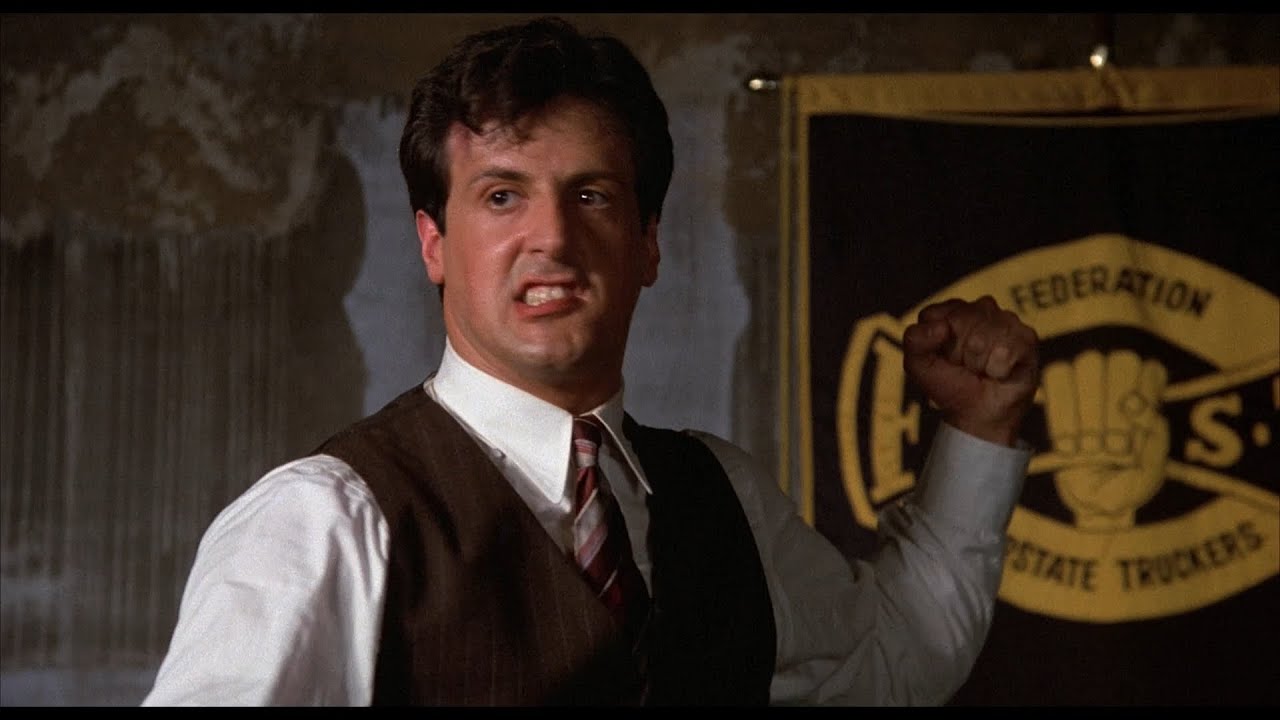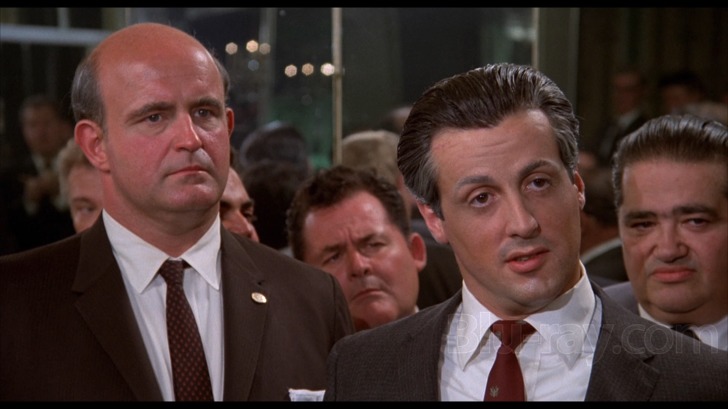F.I.S.T. (1978)

F.I.S.T. (1978)
F.I.S.T. (1978) is a gritty American drama directed by Norman Jewison and starring Sylvester Stallone, who also co-wrote the screenplay. The film is a fictionalized account inspired by the life of Jimmy Hoffa and the rise of labor unions in mid-20th-century America. It follows the story of Johnny Kovak, a Cleveland warehouse worker who becomes a passionate labor organizer and eventually rises to power within a national truckers’ union known as F.I.S.T. (Federation of Inter-State Truckers).

Johnny, the son of Eastern European immigrants, begins as a disillusioned worker frustrated by unsafe conditions, low wages, and abuse by management. When a fellow worker is unfairly fired and others are mistreated, Johnny rallies his coworkers and becomes a leading voice in organizing a strike. His charisma, determination, and deep empathy for working-class struggles quickly gain him attention within the movement.

As Johnny climbs the ranks of the union, the story charts his transformation from an idealistic activist to a powerful and compromised leader. He forms alliances with politicians and eventually the mob, blurring ethical lines in an effort to protect and expand the union’s influence. While Johnny achieves real gains for the workers—better pay, safer conditions, and respect—he also makes morally questionable decisions, sacrificing his original principles in the process.
Tension mounts when the government begins investigating corruption within the union. Johnny finds himself caught between law enforcement, political enemies, disillusioned allies, and the criminal elements he once welcomed. The film culminates in a tragic ending, emphasizing the personal cost of power, ambition, and the dark side of political compromise.
F.I.S.T. is a powerful character study that blends social realism with political drama. It explores the complexities of leadership, the labor movement’s struggles, and the corrupting influence of power. Sylvester Stallone delivers a compelling performance, portraying Johnny Kovak as a man torn between loyalty to the workers and the temptations of control and legacy. The film stands out as one of Stallone’s more serious and thoughtful roles, highlighting the tension between social justice and personal ambition in the American labor story.










